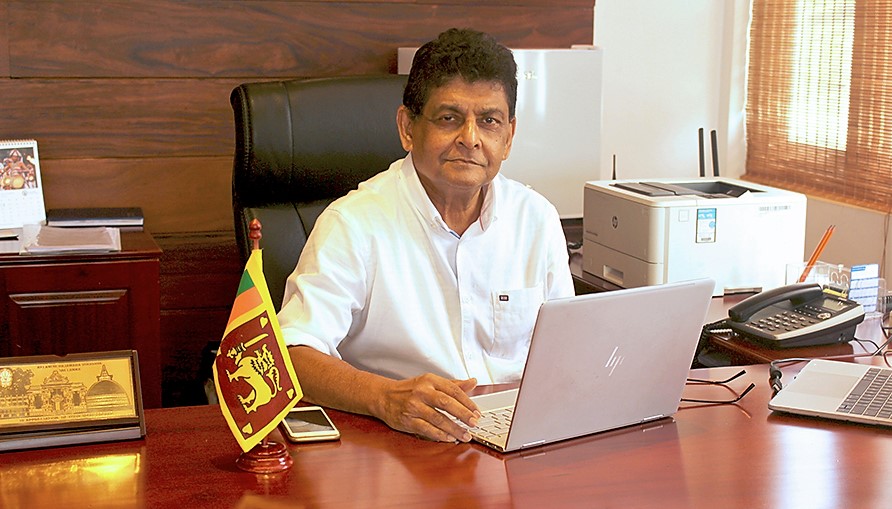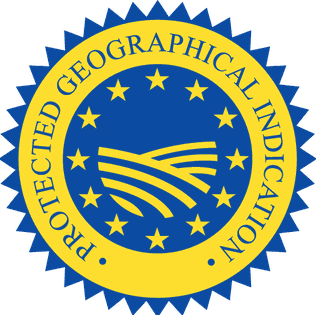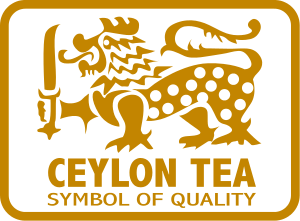In 2021, Sri Lanka launched a ?4.5 billion global promotion to increase the export volume and value of Ceylon tea, a billion dollar brand. The campaign targets 12 markets, including the UK, EU, Asia, and North America. In parallel, the board is pursuing a Protected Geographical Indication by the European Union. GI status affords global trade protection under the World Trade Organization and officially recognizes the authenticity of the Ceylon brand.
- Caption: Jayampathy Molligoda, Chairman of the Tea Board of Sri Lanka

Why Sri Lanka is Seeking GI Status for its Ceylon Brand
By Dananjaya Silva | PMD Tea
A Protected Geographical Indication (GI) is a seal of authenticity awarded products that have a specific geographical origin and possess qualities or reputations that are due to that origin. Correspondent Dananjaya Silva sat down with Sri Lanka Tea Board Chairman Jayampathy Molligoda to discuss why the tea board is pursuing GI status and what this means for prices for producers, exporters, and for the nation’s tea.
Dananjaya Silva: Will you explain how geographical indication protects Sri Lanka’s multi million dollar investment in promoting Ceylon tea in foreign markets?
Jayampathy Molligoda: The World Trade Organization [WTO] TRIPS* agreement is the trade related aspects of intellectual property rights. So, the law relating to geographical indications originally emerged from the TRIPS agreement under WTO. Everything stems from that.
Geographical indications are exclusively for unique offerings like Ceylon tea, or Ceylon cinnamon which identify the product as originating in a Sri Lankan region: quality, reputation, or any other characteristics of Ceylon tea are essentially attributable to its geographical origin.
Ceylon tea is a registered trademark owned by Sri Lanka Tea Board in Sri Lanka. But what is important is that globally 95% of our tea is being marketed in 140 countries. At least 50 to 60 countries take about 90% of our tea. So, it’s a reputed name globally. Unfortunately, over a period of time we have lost some of the markets Pakistan, Egypt even Russia, their market size has come down drastically for the tea. As a result, we have been selling around 28 million kilos out of our 280 million kilos.
One important point I will explain in detail the Ceylon tea is associated with the Lion logo. To qualify for the Lion logo, one has to pack in Sri Lanka 100% pure Ceylon tea so that’s the problem. Ceylon tea, although is a registered certification, it’s not registered legally in other than a few countries.
As a result, there had been some misusers of the name. We were unable to take legal action on some of the infringements, so depriving our genuine exporters’ ability to service and increase their market share in Ceylon tea products.
Ceylon tea is unique, we all know Ceylon tea is unique. Our tea masters know how to prove that through the testing methods, but that is not acceptable to European Union countries. We have to scientifically prove that this Ceylon tea originating from Sri Lanka has unique characteristics because of its geographical origin and reputation. So that is why we are trying to get this GI registration under intellectual property rights.
Dananjaya: In addition to the legal protection it affords, will you discuss how Protected Geographical Indication status also speaks to the unique qualities of Sri Lanka’s tea-growing regions. GI status establishes a strong, distinguishable, and marketable reputation.
Jayampathy: The GI status is a marketable reputation for producers because the producers follow farming traditions. It’s the cleanest tea in the world so that is the brand story for Ceylon tea. If you go back to the TRIPS arrangement under WTO, the original purpose behind geographical indication was to give recognition to the producer, the farmer.
“Our objective is not only to stabilize but to obtain even better prices in terms of U.S. dollars and to get more market share.“
– Jayampathy Molligoda
Dananjaya: Will obtaining GI status help stabilize prices?
Jayampathy: Our objective is not only to stabilize but to obtain even better prices in terms of U.S. dollars and to get more market share.
If you carve off our 300 million kilo per annum production, basically 285 million of that is what is known as Orthodox Ceylon tea. So that orthodox type of Ceylon tea is not ideally suited for tea bags and that may be one of the reasons why we have lost share in the mass market.
Since CTC is different than Orthodox, we have to find a niche market. Our brand marketing strategy rests on three pillars. First, Ceylon tea is an authentic product, as we explain. Next we demonstrate our sustainability credentials compared to other competing countries and products citing, for instance, the fact that our farmers, our regional plantation companies practice environmental sustainability and attend to the social wellbeing of the people under the Tea Control Act. Finally, there is the wellness factor. Because of these three pillars we are getting a premium price for our tea.
As a matter of fact, at the auction level and the wholesale level, we command $3.50 per kilo converted to U.S. dollars at the Colombo auction. The Mombasa Auctions and Calcutta they get less than $2, roughly say $2, according to information provided by ITC [International Tea Committee] as well as FAO, the Food and Agriculture Organization’s Intergovernmental Group findings.
Recently domestic prices have gone up. In order to get more dollars, the authorities have taken the right course by allowing the rupee to fluctuate, but it has to be carefully managed float in my personal view.
There is a tipping point our exporters must address to sell tea at a very high price. The tea board then works to ensure those FOB prices are trickled down through the factories to the farmers. It is more important getting this money to the farmer, not to give benefit to the exporters or the big time players to earn more money.
So we pitch our Ceylon tea in that particular niche as a differentiated product. So how do we differentiate? It’s only through certifications and indications. Once we have obtained GI logo, it can be combined with other quality standards and the traceability can be assured so they know where the tea comes from.
That’s the game plan. We just use the global tea promotion to explain the benefits of differentiated tea.
London-based Dananjaya Silva is managing director of PMD Tea and a fourth generation tea man whose family business, P.M. David Silva & Sons dates to 1945 during the Plantation Raj in Ceylon’s Dimbula Valley. The company was founded on Brunswick Estate in the fertile Maskeliya Valley as a small independent Tea shop for tea plantation workers to gather, relax and enjoy a quality cup of tea.
Related

Overview: The TRIPS Agreement
The Trade-Related Aspects of Intellectual Property Rights (TRIPS) Agreement is the most comprehensive multilateral framework for protecting intellectual property. It was enacted in January 1995 to establish a public register of rights that is accessible globally. It bolsters protection afforded by the issuance of CTMs (certification trade marks). The advantages of a Protected Geographical Indication include additional protection when a CTM is not accepted in a jurisdiction; the ability for GI holders to obtain reciprocal protection of a mark mandate under EU Regulation 2081/92; and the fact that GIs describe with legal precision the product’s direct links with origin.
In addition to geographical indications including appellations of origin, TRIPS covers copyright and related rights (i.e. the rights of performers, producers of sound recordings and broadcasting organizations); trademarks including service marks; industrial designs; patents including the protection of new varieties of plants; the layout-designs of integrated circuits; and undisclosed information including trade secrets and test data. Learn more: TRIPS Agreement
Link to share this post with your colleagues
Signup and receive Tea Biz weekly in your inbox.




